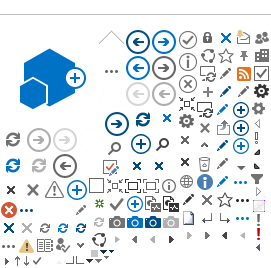Name of Group | 1.02 Security Working Group |
Area | Systems Engineering Area (SEA) |
Chairperson | Howard Weiss |
Chairperson E-Mail Address | howard.weiss@parsons.com |
Chairperson Agency | NASA |
Deputy Chairperson | Marcus Wallum |
Deputy Chairperson E-Mail Address | marcus.wallum@esa.int |
Deputy Chairperson Agency | ESA |
Mailing List | sea-sec@mailman.ccsds.org |
Scope of Activity | The CCSDS Security Working Group develops security guidance, security standards, and provides advice & guidance to other CCSDS working groups. |
Rationale for Activity | CCSDS develops communications and mission operation standards that support inter and intra agency operations and cross support. CCSDS standards include elements of flight and ground systems that are developed and operated by different agencies and organizations.
Given that ubiquitous network connectivity among principal investigators and mission operations has become the norm, mission operations have become more exposed than in the past when operations were carried out over closed, mission-only networks. Furthermore, the threat of sophisticated cyber attacks has increased over recent years and will continue to increase. Thus, the security risks to both spacecraft and ground systems have increased to the point where CCSDS must introduce Information Security standards, either by adopting existing standards or developing (as necessary) them in order to protect both flight and ground mission critical resources and protect sensitive mission information and selected communication protocol data fields.
Mission planners must perform mission security threat analyses to better understand threats that they should plan to counter via security requirements. Mission planners must also design security into their systems from the outset to balance security with mission ensure requirements. CCSDS must promote secure interoperability for mission resources. CCSDS also requires Information Security standards as part of, or as an accompaniment to its communications and mission operations standards.
In order to help the mission planner successfully design-in security the CCSDS Security Working Group will provide “tools” such as security standards, guides, and architectures which must be identified, defined, maintained, and updated to ensure relevance with current threats identified by CCSDS as well as other sources.
|
Goals | The goals of the Security Working Group are to:
1) provide advice and guidance on information security to all CCSDS activities, working groups, and the general space community;
2) identify information security issues across the full spectrum of CCSDS activities and provide solutions;
3) adopt or develop (as necessary) interoperable security standards for CCSDS and CCSDS cross support infrastructure (e.g., authentication, encryption, integrity, key management, key distribution);
4) formulate courses of actions to incorporate security policies, security services, and security mechanisms into CCSDS work items across all Working Groups;
5) hold working meetings with other Working Groups to develop agreed approaches and formulate the plans for integrating them into the work of these other Working Groups
The Security Working Group shall develop, revise, and maintain guides (Green Books), best practice documents (Magenta Books), and recommendations (Blue Books) such as:
1) an information security guide for mission planners;
2) a policy framework for developing trust agreements, rules for operational engagement, ensuring security compliance of legacy systems, and standard, secure interfaces between systems and across security domains;
3) a CCSDS security architecture;
4) an Information Security threat statement for CCSDS which is periodically reviewed in order to remain relevant with the evolving threat environment against space missions;
5) an integration of relevant existing and arising standards into the development of mission security requirements and other documents;
6) key management guide and recommendations;
7) a description of guidelines for secure development, implementation, and testing;
8) a guide to standardized cryptographic algorithms and the particulars of their application to space mission security;
9) an adaptation profile for the use of IPsec to provide network layer security for CCSDS missions
|
Survey of Similar Standards Efforts Undertaken in
Other Bodies and elsewhere in CCSDS | |
Patent Licensing Applicability for Future Standards | There are no known or potential patent license that would be required for users to implement standards from this group.
|
Technical Risk Mitigation Strategy | Security is a key part of rigorous systems engineering. In the past, it has been met with resistance in CCSDS. However, there is now general acceptance of the need for security services even for civilian space missions and, as a result interactions with other working groups are increasing. Working group resources have increased and need to remain at their current level.
|
Management Risk Mitigation Strategy | Unavailability of resources will delay achievement of milestones. Fallback option would be to reschedule the milestones.
Identification of specific security guidelines may result in additional work items being agreed upon with other working groups.
|


